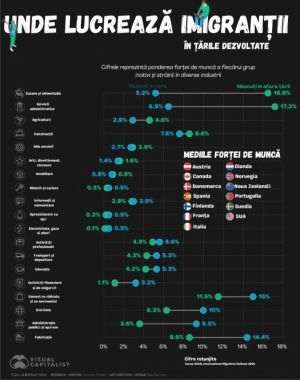The National Bank of Romania (NBR) will rescue the possibly troubled banks, with money from the Fund for the Guarantee of Deposits in the Banking System (FGDB), according to an Emergency Government Ordinance (OUG), which will be discussed in the Senate in the extraordinary session of the month of August.
Just as the rumors about the fragility of our banking system are beginning to circulate, through this emergency ordinance, the Government hints at the possibility of some banks facing problems, even though, according to the statements of the NBR officials, the banking system is solid and well capitalized.
In contradiction with these messages, the Government comes out with the emergency ordinance which offers an immediate solution (it is an "Emergency Ordinance) to a problem which it admits is possible.
According to the Emergency Ordinance, the FGDB will act as manager or shareholder of the bank, and take part in the increase of the bank's share capital, with the Ministry of Finance lending to the Fund, if it were found the Fund was insufficiently capitalized.
• Sources: The involvement of the FGDB in the share capital increase would leave deposits unprotected
The FGDB was set up to guarantee the deposits of private investors (companies and individuals), but the involvement of the fund in the share capital increases of banks would leave deposits unprotected, market sources claim.
Other sources said that if the Bank Deposits Guarantee Fund were to take over the management of troubled banks, then Romania's borrowing costs would severely increase.
According to the aforementioned sources, the fair thing to do would be for banks to return the deposits to customers and then sell off the troubled assets.
"It was to be expected that the authorities would come to a decision like that, as the Greek banks, as well as those in other countries are doing very badly, and some of the credit lines have reached maturity", our sources went on to say.
The loans which the Ministry of Finance may grant to the FGDB, in the event the latter does not have sufficient resources, will be financed by banks as well, which are currently lending to the Ministry of Public Finance the money given to them through repo operations, our sources claim.
After the insolvency of "Hidroelectrica" was announced, the faith of lenders in the government was shaken, and this was demonstrated by the increase in the yields of they were demanding at the government bonds auctions held by the Ministry of Public Finances.
While banks are extremely stingy when it comes to the auctions held by the Ministry of Public Finances, the situation is quite the opposite when it comes to the NBR. The amounts raised and the number of lenders participating in money market operations are rising.
Our sources claim that banks which regularly participated in the money market operations are having liquidity problems, and they went on to say that the banks in question might be the Austrian, rather than the Greek ones, as the market suspected.
Two of the Austrian banks, present in our banking sector, last month were targeted by ratings firm Moody's.
The firm cut the ratings of the deposits of the Romanian Commercial Bank (BCR) and of Raiffeisen Romania to "Ba1", meaning they represent speculative investments.
At the time, the financial ratings firm warned that BCR, as well as Raiffeisen Bank Romania are facing a large number of non-performing loans, which represent a risk factor for its stability.
• Aurelian Dochia: "I don't think this ordinance should come as a surprise"
Unfazed by the ordinance, economic analyst Aurelian Dochia said that the use of the Bank Deposits Guarantee Fund to save troubled banks was stipulated in the agreements with the International Monetary Fund, and the Ordinance issued by the Government brings some clarifications concerning the manner of operation of the Fund.
He said: "I don't think this ordinance should come as a surprise. The fact that the Bank Deposit Guarantee Fund is required to pay in the event of a bank default entitles it to take over its management, in order to help turn it around. Thus, the Fund becomes the most important creditor of the bank. Recapitalization or asset sales are just details".
In the opinion of the economic analyst, a decision will need to be made on a case by case basis, with the simplest solution being the sale of the portfolio of assets.
• Cristian Ionescu: The participation of the Guarantee Fund in rescuing banks is a good thing
Cristian Ionescu, the head of Coface Romania thinks that the Government's decision is a good thing for the Romanian banking system.
The involvement of the Guarantee Fund in bailing out banks is used as a vehicle, in a manner similar to what is happening on a European level, which could intervene in case it becomes necessary, he said. The head of Coface Romania added that banks have the duty to support each other through the common fund, which they contribute to.
Cristian Ionescu also said: "I don't know if the government's decision has anything to do with any actual problems of a bank, or whether it is in line with what is happening in Europe, but it is a good step".
• Dan Radu Ruşanu, the questor of the Senate: The ordinance will be discussed in the Senate, in August
The Emergency Ordinance concerning lenders, which was approved by the government last week, will be debated by the Senate in the extraordinary meeting of the month of August, senate questor Dan Radu Ruşanu said last Friday, according to Mediafax.
He explained: "The government, in its wisdom, issued a new Emergency Ordinance to modify the regulations concerning banks and capital adequacy. More specifically, this is a measure of stability taken by the National Bank of Romania and which the government had to urgently adopt. It is an involvement of the Bank Deposit Guarantee Fund in the bank's equity and in order to guarantee the banks, through the reserves of the NBR".
The representative of the National Liberal Party in the Permanent Office went on to say that the deadline has been set for August 28th, for discussing the emergency ordinance in the Budget and Finance Commission and that the final vote would subsequently be rendered in an extraordinary session set for August 29th - August 31st.
The Ordinance stipulates making it mandatory for the delegated manager to summon the General Shareholder Meeting, to decide the reduction of the share capital, by covering the losses having occurred prior to the share capital increase, by issuing new shares which would be subscribed by the Fund, Andrei Zaharescu, spokesperson to the government said last week, quoted by Mediafax.
When asked by the journalists whether, through this ordinance, the state would indirectly finance the "bailout" of the lenders (with the Ministry of Public Finance set to lend to the Bank Deposits Guarantee Fund if it doesn't have enough resources), the spokesperson of the Government confirmed it.
In the beginning of this year, the government approved the legal framework which allows the creation of a bridge-loan, which will take on the assets and liabilities of lenders threatened by bankruptcy.
Based on the new legal framework, if a significant deterioration of the prudential indicators of a financial institution is visible or is to be expected, if the bank experiences a liquidity crisis which could affect the interests of depositors or of other creditors or if its own funds do not exceed 75% of the minimum capital requirements, then the NBR will be allowed to decide the total or partial transfer of assets and liabilities over to a bridge-bank.
The bridge bank would be one of the three tools which the Central Bank would have available for use in the event of a lender at risk of bankruptcy would pose a systemic risk, in other words, if a potential fall of the lender would significantly affect the other banks as well. Prior to the creation of the bridge loan, the NBR would have the option to approve the takeover of assets and the taking on of liabilities or the inclusion of the FGDB in the shareholder structure of the bankrupt bank, while at the same time suspending the voting rights of the other shareholders.
• Adrian Vasilescu: "It pains me greatly that we do not have a system of Romanian banks"
The idea of the necessity of a banking system with domestic equity was discussed heavily last week.
After Marinel Burduja said, in an interview granted to the BURSA newspaper, that we need to solve our own problems and that confidence in the economy should begin at home, just one day after, the businesspeople admitted that we need banks with domestic capital. They were also joined by Adrian Vasilescu, advisor to the governor of the NBR, who last Friday expressed his regret that Romania does not have a system of domestic banks.
He said (in his own name), quoted by Agerpres: "It pains me greatly, because we do not have a system of Romanian banks in the country. Who was going to build a system of Romanian banks here? When the banking system developed, the lenders needed capital, needed competency, management. Where could we have gotten all that? We were forced to import the banking system, and we have it, for what it's worth. It is a strong system and you should know that the National Bank of Romania is terribly concerned with keeping the system stable and able to stand on its own two feet, and with making sure it doesn't crash".
Adrian Vasilescu mentioned that in Romania there is an economic crisis, not a financial or a banking crisis.
He went on to say: "Romanian capital has to be built. The rest of it comes from abroad. Unfortunately, between 2000 and 2008, we had an economic growth at an alert pace, at the highest level in Europe, with the help of money saved by foreigners.
Romanian equity can be built by saving.
I can't think of any other way but saving.
This takes many years and we need to have a complete strategy. Right now we do not have domestic equity".
The banks with majority or full foreign equity, including the branches of the foreign lenders, last year accounted for 83% of the total assets of the banking system, according to the 2011 Annual Report of the NBR.
In terms of the countries which own stakes in the share capital of domestic banks, and of the branches of foreign banks, at the end of 2011, the top three spots in the aggregated capital were still held by Greece (22.9%), by Austria (20.8%) and by Holland (11.5%).
•
The organization and the functioning of the FGFDB are set through its own bylaws, approved by the Board of Directors of the NBR, upon the proposal of the Board of Directors of the Fund, with the consultative approval of the Romanian Banking Association, according to the Government Ordinance no. 39/August 28th, 1996 concerning the creation and functioning of the bank Deposits Guarantee Fund (FGDB).
























































